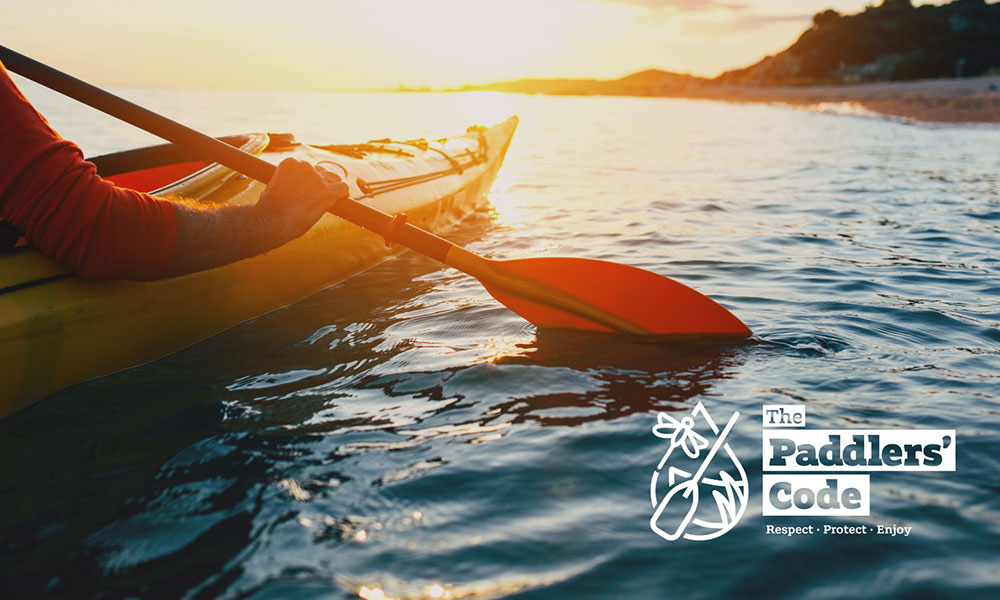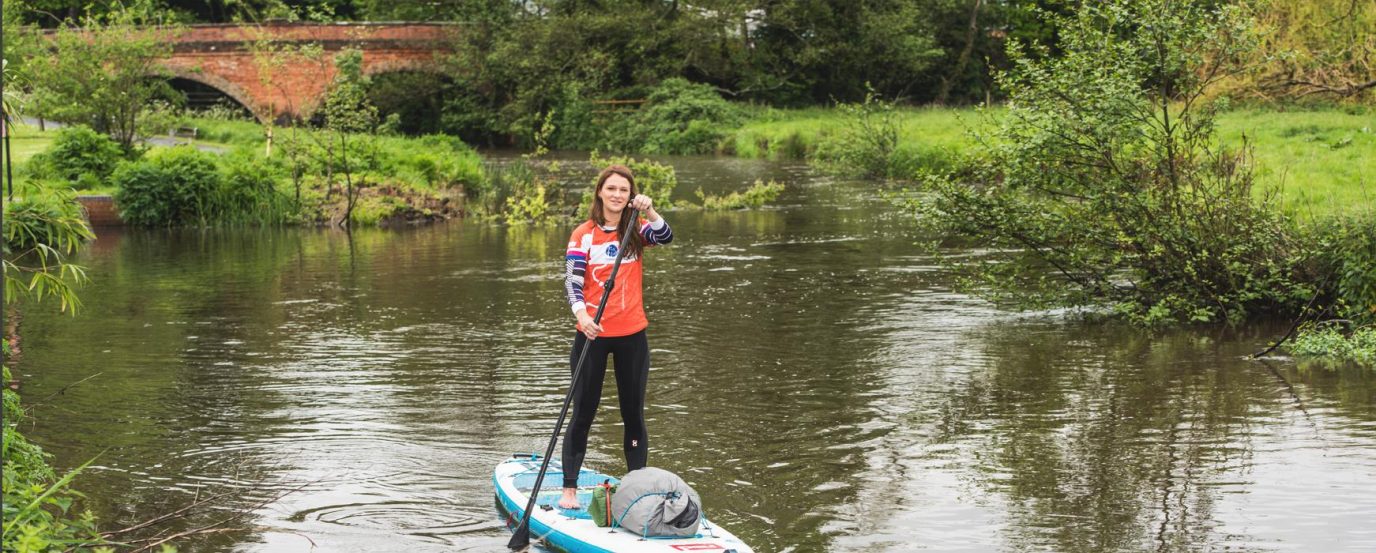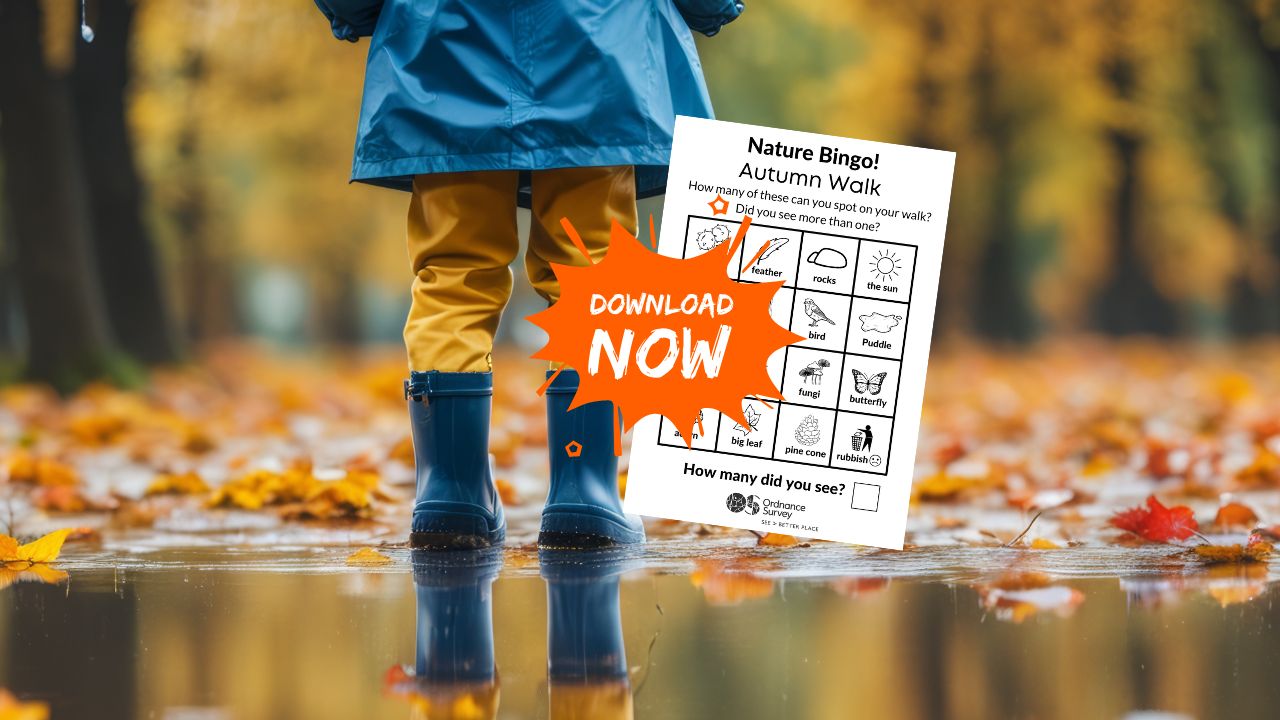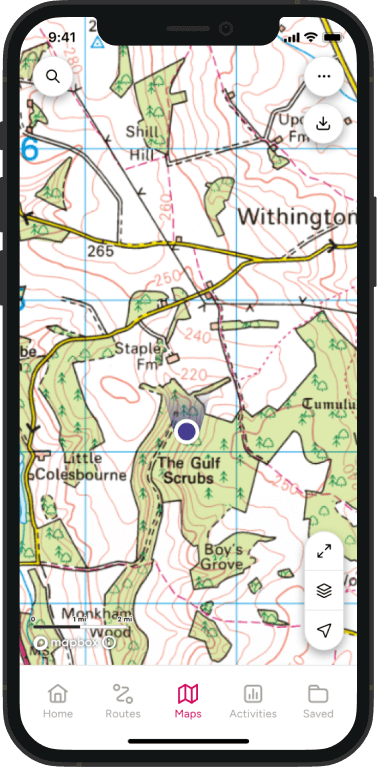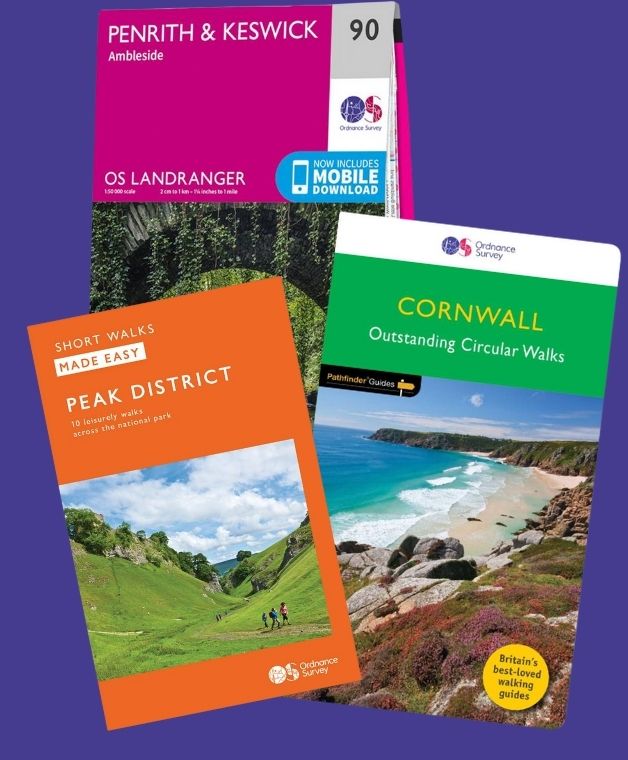Revealing the shocking truth about our waters
British Canoeing tell us all about their Big Paddle Cleanup, a week-long campaign where paddlers up and down the country took to the water to collect rubbish. What did they find? This article reveals all.
What’s in our waterways?
Our waterways are in crisis. A ‘chemical cocktail’ of sewage, agricultural waste and plastic are polluting our rivers. These are the words from the government department set up to look at improving water quality.
About 80% of the plastic in our oceans originates from litter in our rivers according to a World in Data report. It is easy to feel downhearted and helpless. But our fantastic community of paddlers went beyond the call of duty to show they can make a difference.
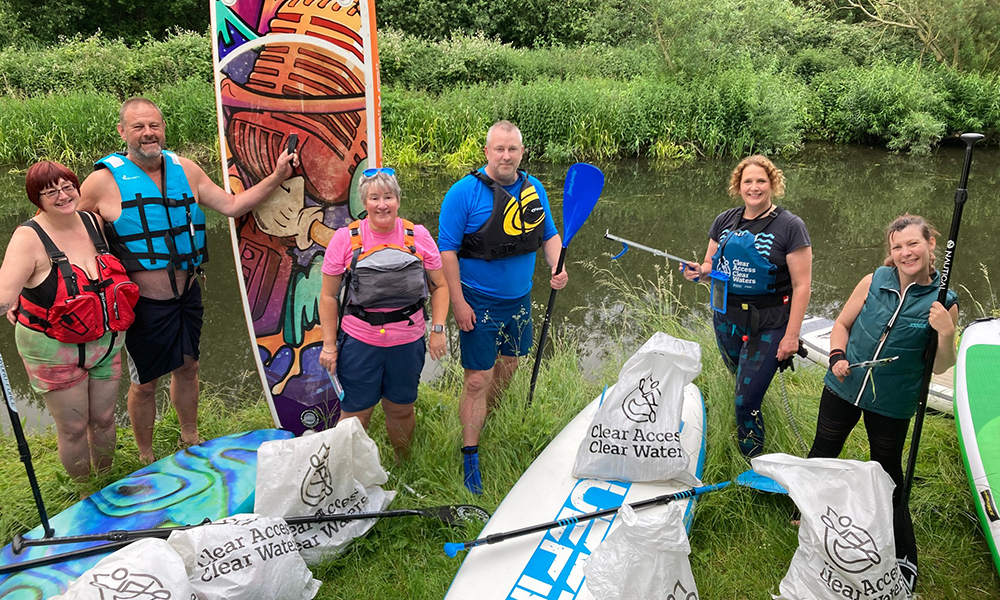
Leicester Windsurfing and SUP club


“Single-use plastic makes up a large part of the ‘chemical cocktail’ in our waters.”

The problem with plastic
The impact of single-use plastic is not yet understood but we know plastic has already entered our food chain and, of course, is damaging to wildlife. Plastic has its benefits, but these strengths also create issues when it reaches places it isn’t meant to be in. It often ends up in our rivers due to its light weight and durability. That litter then starts its journey out to sea.
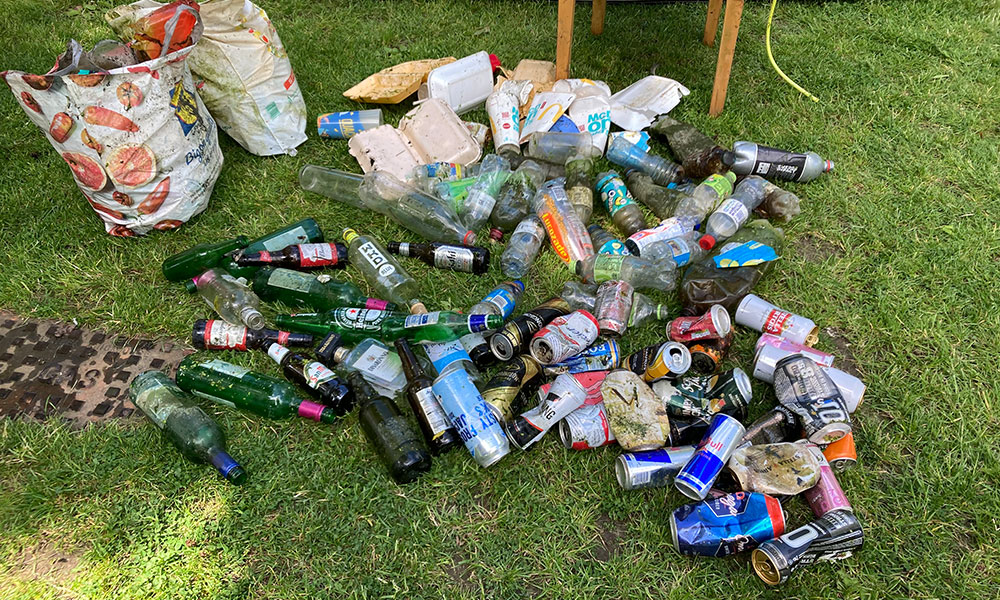
Rubbish collected by Lincoln Canoe Club
The Big Paddle Cleanup
British Canoeing’s Big Paddle Cleanup campaign was a bid to be part of the solution. Many communities have been taking positive action with regular beach clean ups taking place across the country. Paddlers on our waterways can recover plastic and other junk which others would find hard to reach. And so, the paddling community came together to support the inaugural Big Paddle Cleanup.
Hundreds of canoeists, kayakers and stand up paddleboarders signed up. All determined to remove as much plastic pollution from our blue spaces as possible. We have been impressed by the support and engagement from our members and supporters.
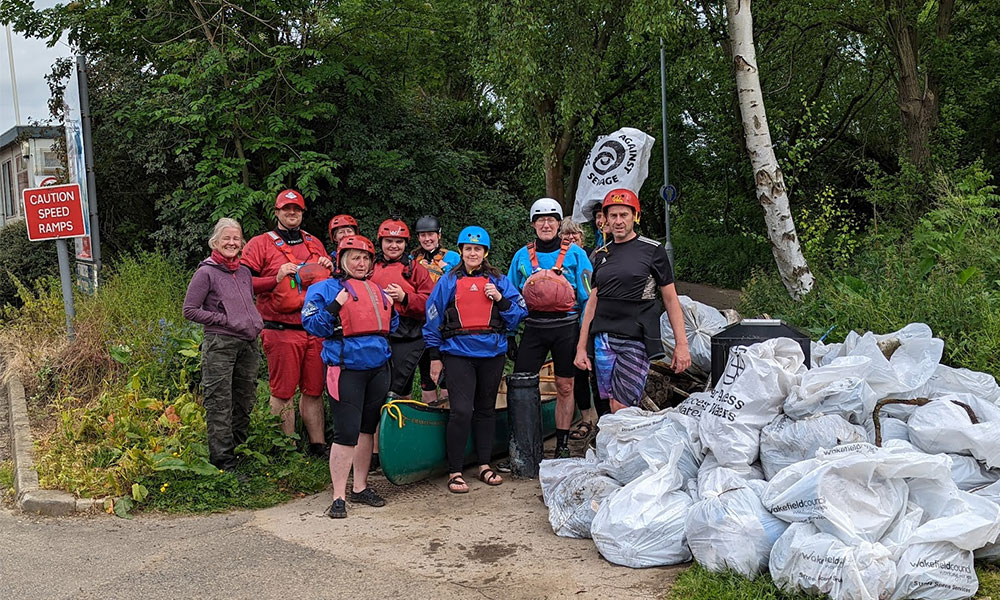
West Yorkshire Canoe Club
In total, 1228 volunteers took part. They came from 103 English canoe clubs, 30 community groups and delivery partners, along with individual members. Each river clean took about two hours, which equates to roughly 2,456 hours dedicated to the campaign by volunteers.
The data is still coming in, but here’s what we have so far………………..
What was found during the Big Paddle Cleanup
704 sacks of rubbish were collected from our rivers, canals and other waterways. They contained:
2,123 single use plastic bottles
1,476 cans
831 glass bottles
3,296 food wrappers
It’s worth mentioning that a full breakdown of items removed was not possible. This was because of the sheer volume and the state of the items, having been in the water for so long.
Unusual finds included, a footstool, a computer monitor, an electric scooter, a doll’s leg, a water pistol, a high chair and some dental floss – all dumped in our rivers!
To see what other things paddlers found, check out our online map.


“704 sacks of rubbish were collected from our waters in one week”

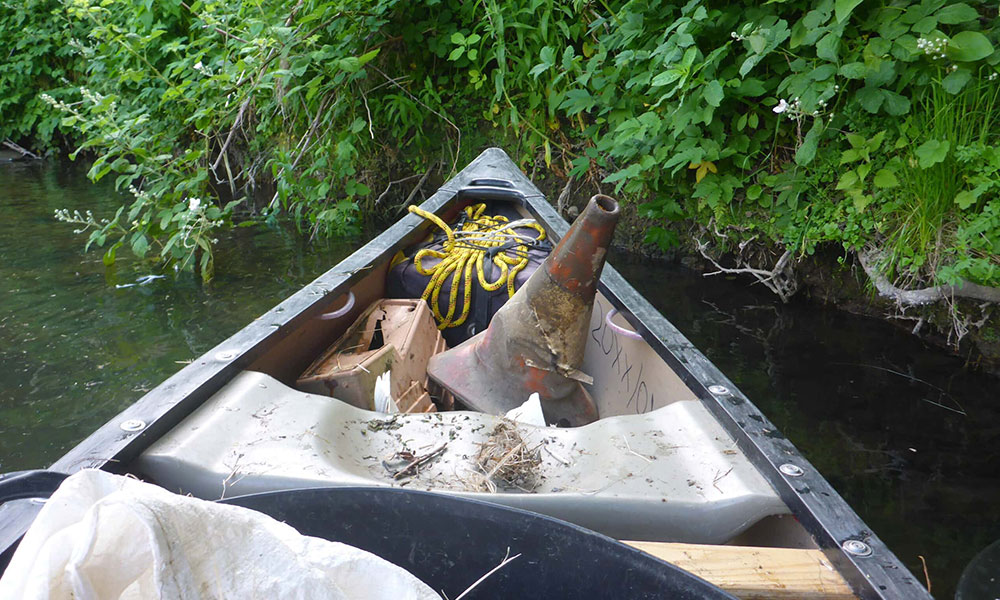
Rubbish collected from Midland Canoe Club
From a volunteer’s perspective
The Big Paddle Cleanup was an amazing week of action by paddlers. There was a real sense of camaraderie. Sue Bushell, from Midland Canoe Club, in Derby, was one of the people who took part.
She said: “A small flotilla of one canoe and three kayaks armed with bags and litter pickers headed out again in the sunshine from Midland Canoe Club. We weaved in and out of the trees and banks as we headed upstream towards the final section of our ‘normal’ paddling range not yet covered in our spring-cleaning blitz.
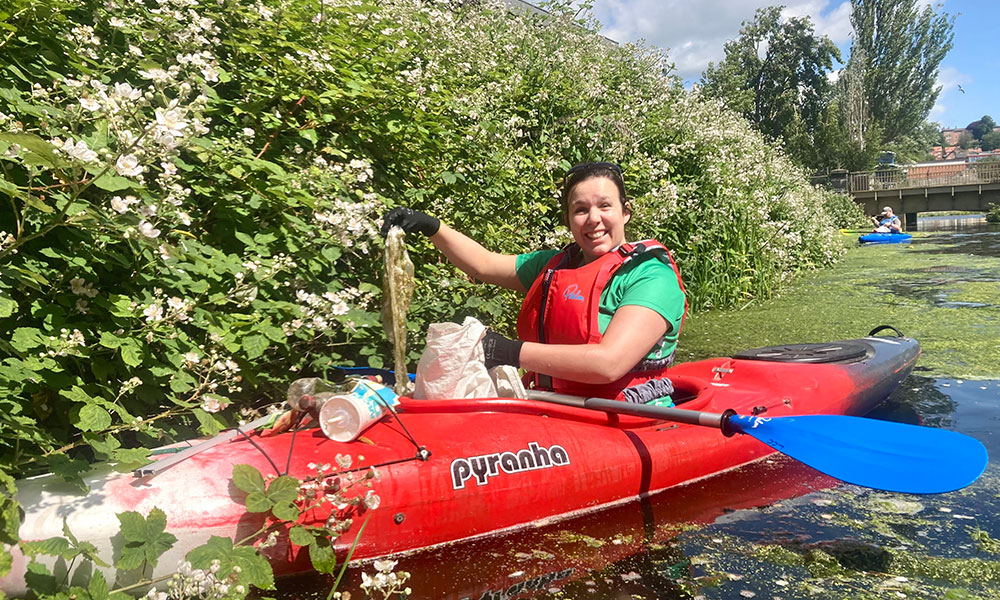
Paddlers from Lincoln Canoe Club
We were entertained en route by dragonflies, damselflies, a variety of birds and a lovely group of seventeen fluffy little mandarin ducks. We collected an array of shredded plastic, whole plastic bags, sweet and crisp wrappers, plastic bottles, beer cans etc. Also found, that favourite, the traffic cone plus a couple of plastic plant pots, large pieces of polystyrene and a toy gun! The combination of canoe, acting as a big rubbish depository, and more manoeuvrable kayaks worked well again, with good support being provided between the boats to get at the more difficult to reach items.”
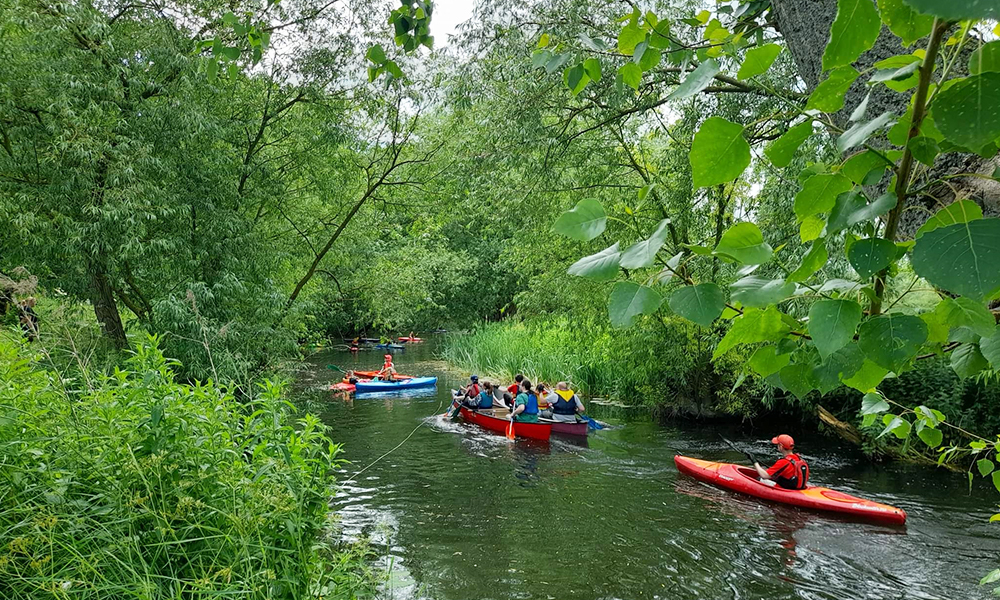
4As Newark
Creating a community of paddlers
Another group who took part was 4As Newark (Adventure Activities for All Abilities), a community club which encourages people with physical and learning disabilities to take part in sport. Julie Gray, a paediatric physiotherapist, who has been working with young people with additional and special needs for about 30 years, led a cleanup on 11th June, on the River Devon, near Newark.
“For my youngsters the [Big Paddle Cleanup] is ideal,” she said.
“They all love it. It’s one of their favourite things that we do. It’s what motivates them. One lad was cleaning up before we even got on the water. They have good environmental awareness and it’s something they can do and feel good about themselves. We’ve been having [cleanups] for three years, but it was lovely to have the extra equipment from British Canoeing.”
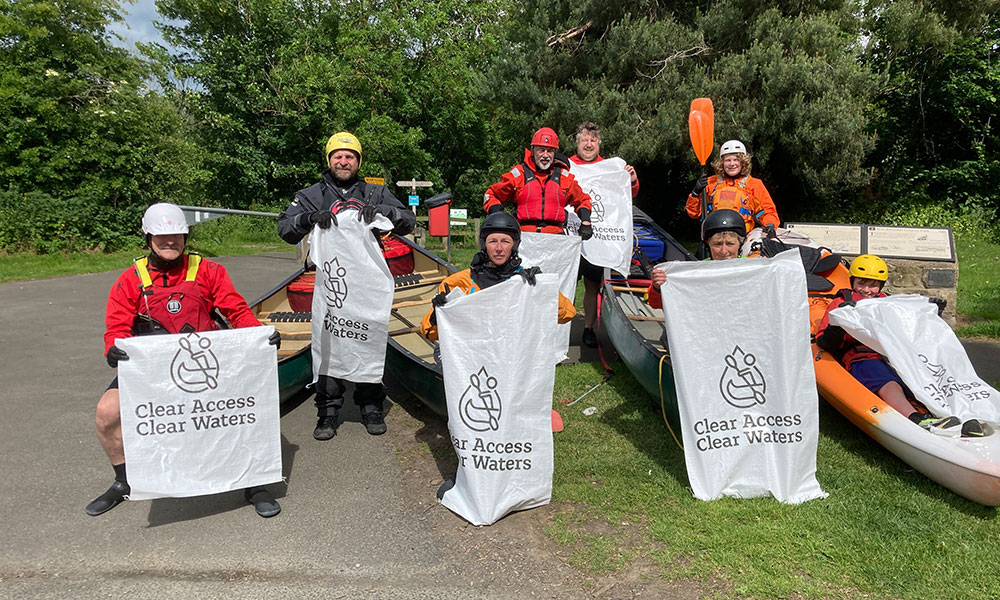
Tyne Valley Canoe Club
A big thank you
Everyone came together to protect the places and remove plastic pollution. It has been inspiring. We would like to thank those paddlers who volunteered their time to get behind the campaign. They are helping to protect our blue spaces for people, for nature and for the future. The campaign highlighted a real need to reduce our plastic footprint along with the need for access to water to enable our community to protect the environment for all to benefit.
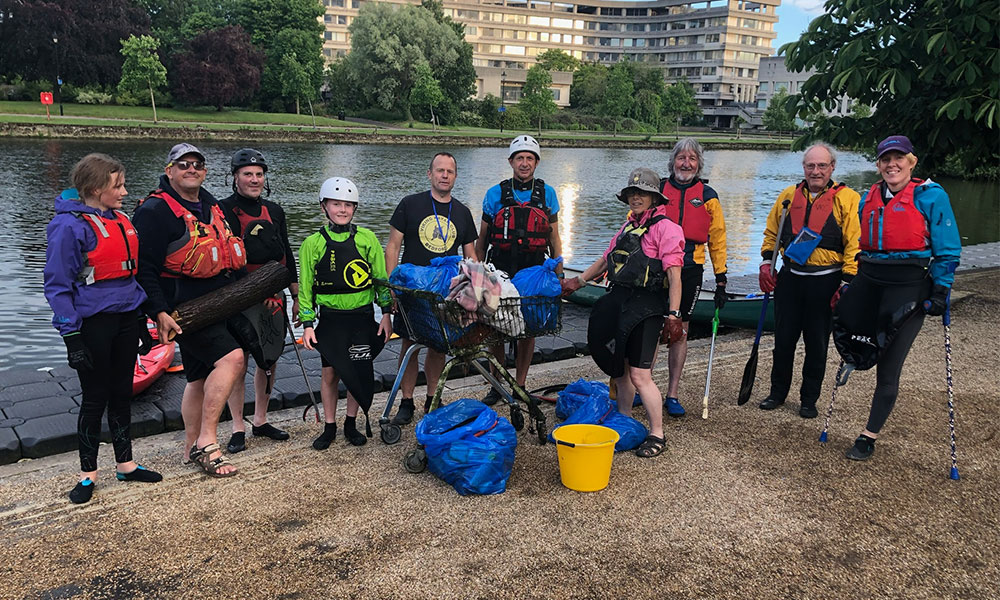
Viking Kayak Club
How you can help
British Canoeing and our paddling community, will continue to remove plastic pollution. It’s helpful if we all play our part in removing plastic pollution and litter where we can. A couple of pieces on each paddle helps, so next time you pick up a paddle, help clean up our blue spaces so they can be enjoyed for years to come. It would also help if we tackled the source of the problem and swapped single-use plastic for more sustainable alternatives in our day to day lives.
Find out more on how you can do you bit and organise a great day out with your own cleanup. Whether you SUP, canoe, or kayak, British Canoeing On The Water membership gives you a licence that opens up 4,500km of water for you to enjoy. Written by Chantelle Grundy, Access & Environment Lead at British Canoeing.
A new code for paddlers has been launched by British Canoeing. The Paddlers’ Code aims to help people enjoy our waterways responsibly. It sets out what paddlers can do to protect our environment, respect other users and safely enjoy being on the water.
Whether you want to organise your own paddle clean up or just simply enjoy time on the water, you can now find recommended paddle routes across Great Britain in OS Maps or create your own.

